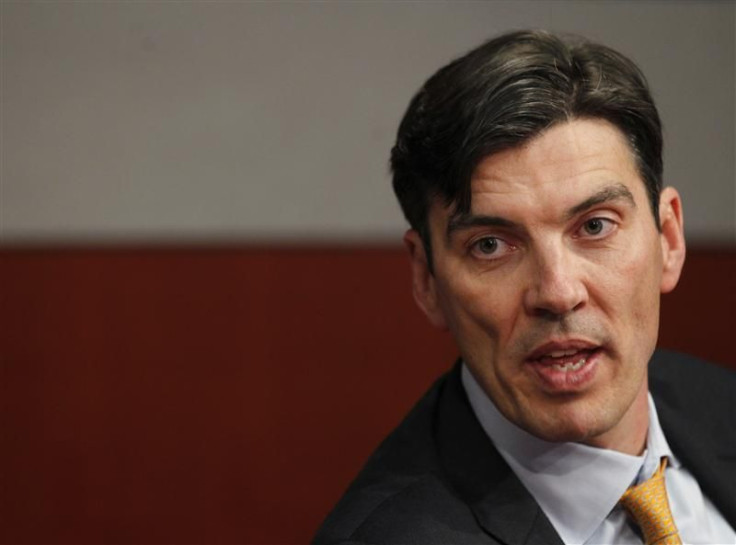HuffPost Employees Could Get Discounted FiOS After Verizon Deal, If They Don't Get Sold First

At 7 a.m. Tuesday morning, the Wall Street Journal sent out a push notification -- “Verizon Communications to acquire AOL for $4.4 billion in cash" -- that sent journalists' phones and brains buzzing. For some AOL employees, it was a shock. Who would be their new owner, and what would be the future of their operations?
Tech writers went where tech writers go: microblogging site Twitter. In the morning, several editors posted their worries about what would become of Shingy, AOL’s digital prophet (read: New Yorker profile). And in due time, The Atlantic’s tech site Quartz had confirmed he will remain with AOL. As to the fate of AOL's other employees, that news is still to come.
AOL owns and operates several high-profile news outlets, including The Huffington Post, TechCrunch, Engadget, Moviefone and its own AOL.com. But few employees remain from the AOL editorial departments as they were previous to this transition. In 2011, after AOL acquired The Huffington Post, the company cut 900 jobs. One former AOL employee told International Business Times that by the one-year anniversary of the HuffPost acquisition, only a couple dozen editors and writers were on staff.
The press this morning outside the house that AOL built (or bought) wasn't talking about jobs. Analysts were dissecting the deal and laying Verizon's decision to go for AOL at the altar of ad tech, mainly for mobile and video advertising.
But AOL CEO Tim Armstrong apparently is saying Verizon's priority was something else: content. After a morning of conversation at AOL headquarters, Armstrong held an all-hands meeting with employees at 10 a.m.
Tim Armstrong: Main reason Verizon is interested in deal is content properties. Second reason is having ad-supported model -- aka AOL One
- Alexander C. Kaufman (@AlexCKaufman) May 12, 2015What is to become of the content is unclear, and many in the media companies started to wonder about editorial independence. Neither in the memo nor the talk did Armstrong directly mention how content would be affected, othert than to say AOL's brands would remain in tact. Shortly after the news broke, Engadget editor Terrence O’Brien tweeted that editorial independence would remain at the tech publication.
To be clear: This changes nothing editorially at @Engadget. We'll continue to cover Verizon, net neutrality, etc... the way we always have.
- Terrence O'Brien (@TerrenceOBrien) May 12, 2015Tech publications like Engadget and TechCrunch repeatedly report on net neutrality and other issues that Verizon has come out against. In fact, when rumors of Verizon acquiring AOL came up in January, TechCrunch editors had emphasized editorial independence.
Though if Verizon did buy Aol, @panzer and I would pivot Techcrunch into 24-7 coverage of Net Neutrality and NSA issues.
— Alexia Tsotsis (@alexia) January 6, 2015
There appears to be no playing favorites so far. As AOL made the round this morning for press interviews on the merger, TechCrunch, which often covers mergers and acquisitions of tech properties, did not get selected.
they did a lot of press interviews. we didn’t get one.
- Jordan Crook (@jordanrcrook) May 12, 2015
The deal had several AOL employees asking about new benefits under the new ownership, such as discounts for Verizon service plans as well as access to Verizon FiOS.
Most commonly OH [overheard] at HuffPost today: "So can I get Fios for free?"
- Alexandra Svokos (@asvokos) May 12, 2015
Verizon does, indeed, offer discounts on Verizon products and services, according to the company website. For AOL employees, benefits will not change in 2015, however. Employees are expected to go on Verizon’s benefit plans in 2016, an internal memo reads.
But it is unclear whether HuffPost employees and other news publications under the AOL umbrella will ever see those benefits. As Recode's Kara Swisher reports, AOL is in talks to spin off The Huffington Post. After the all-hands meeting, the HuffPost office buzzed about who could acquire the company if it were sold off. One HuffPost employee said several people were naming Yahoo as a contender.
Conversation has since come to a halt following the all-hands meeting this morning. Another HuffPost employee said she thought writers understood they need to keep working as usual since it's still unclear what will happen.
Armstrong and Huffington were said to be meeting at 4 p.m. today. And tech writers are covering the news. For now, it's still business as usual.
© Copyright IBTimes 2025. All rights reserved.




















